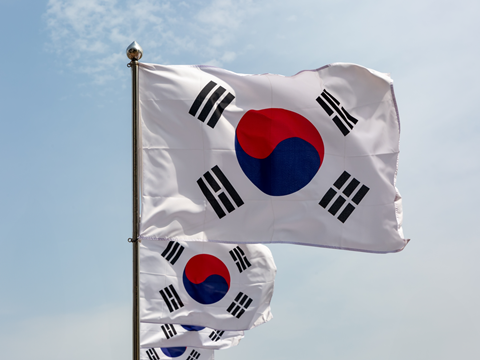
As negotiations continue at INC-5 in Busan, the Business Coalition for a Global Plastics Treaty calls for a legally binding instrument to set international obligations, take sector-specific action, and enforce Extended Producer Responsibility (EPR) schemes in a bid to eliminate plastic pollution.
‘Problematic’ and avoidable plastic products, chemicals of concern, and plastic product design should all be addressed through a set of common obligations, the Coalition says. So, too, does it encourage legislators to implement effective EPR schemes.
Furthermore, it calls for programmes of work to be sector-specific, meaning key provisions can be implemented ‘where there is sufficient alignment’. Packaging is raised as one of the first areas to make such progress.
The Coalition also seeks a mandate for the governing body to strengthen the agreement over time.
Coalition co-chair Unilever names itself among the organizations pursuing change through voluntary initiatives, including the United Nations Environmental Programme Global Commitment and the work of the Ellen MacArthur Foundation. The Coalition itself ‘aims to give confidence to governments that businesses and financial institutions want harmonized global rules and regulations’.
Yet the company argues that optional measures aren’t enough – that they often drive up costs and distort the market. As such, companies can be disincentivized from taking voluntary action due to the competitive disadvantages they would face.
Unilever underlines the importance of an even playing field holding all companies to the same standards, stating that more upstream and downstream interventions are required to cover the full lifecycle of plastics.
A voluntary treaty is feared to fragment regulation into a patchwork of nation-specific rules, which would only increase cost and complexity for businesses. On the other hand, global rules are set to harmonize regulations, simplify supply chains, and help solutions reach the necessary scale at speed.
“There remains too much emphasis on national measures,” says Unilever CEO Hein Schumacher. “We know already that this will not work, as it will create more fragmentation.
“Business has shown it can scale solutions, but to go much faster and further, we need mandatory global rules.”
The Coalition has published its ‘Treaty on a Page’ roadmap, which provides a simplified ‘starting point’ to build the instrument by breaking its Vision Statement down into its core elements. Its minimum requirements are hoped to serve as a roadmap for the effective implementation of a treaty.
Moreover, the Coalition emphasizes its focus on reaching sustainable levels of virgin plastic production by endorsing the Bridge to Busan Declaration. Recently signed by the European Union, the declaration intends to moderate primary plastic polymer production and deal with the impacts of plastic pollution via an international, legally binding instrument.
In the lead up to INC-5, Hein Schumacher was among the industry CEOs to sign an open letter to Heads of State encouraging governments to tackle plastic pollution at a global level. Governments themselves are expected to benefit from an international treaty, the letter says, with long-term spending on waste management decreasing and investment to create jobs across the value chain being mobilized.
WWF recently published its own view on the Global Plastics Treaty – envisioning global bans for the “most harmful” plastic products and chemicals, specific phaseout timelines, specific phaseout timelines, and more. It called upon governments to “get serious” in response to “dismal” outcomes at COP16 and COP29.
Marta Longhurst, Global Plastics Treaty manager at the Ellen MacArthur Foundation, also spoke to Packaging Europe about the importance of intergovernmental unity in achieving an effective treaty. She argued that ‘the most meaningful impact lies in taking upstream actions’ and underlined the Foundation’s commitment to the Bridge to Busan Declaration.
For a recap on the four INC meetings that have taken place so far, take a look at our guide to INC-5 to track the treaty’s progress so far.
If you liked this story, you might also enjoy:
The ultimate guide to the Packaging and Packaging Waste Regulation in 2024
How are the top brands progressing on packaging sustainability?
Sustainable Innovation Report 2024: Current trends and future priorities
Everything you need to know about global plastic sustainability regulation


















No comments yet